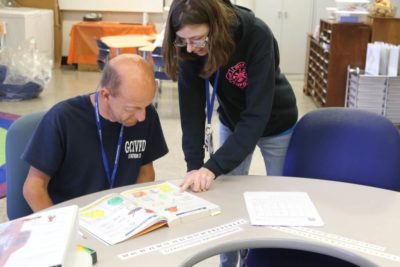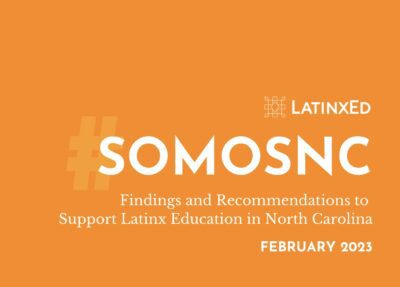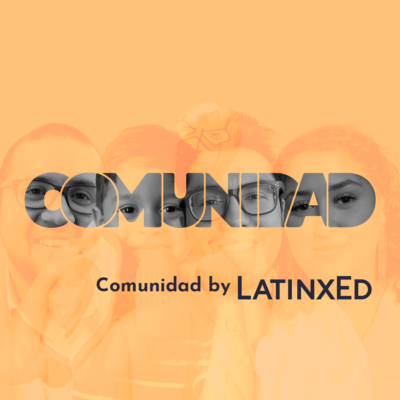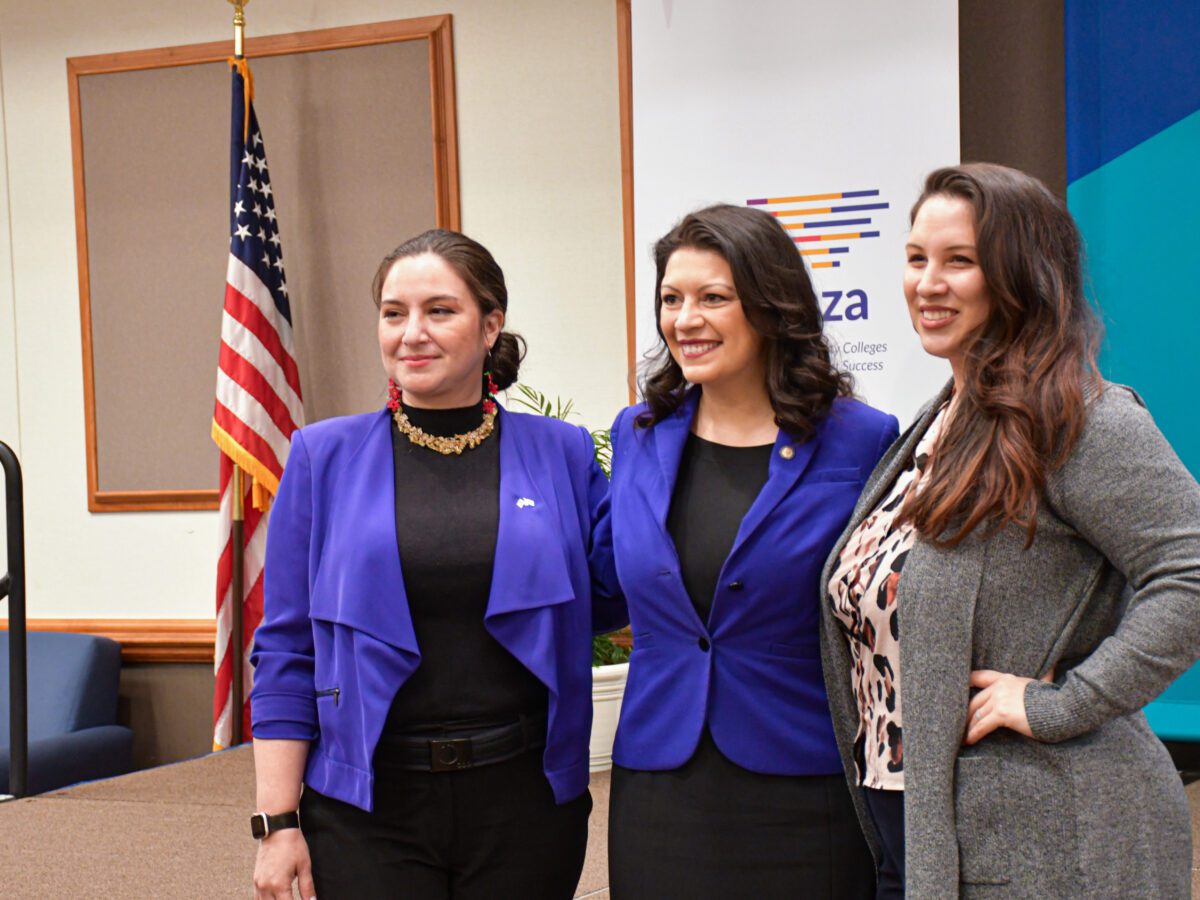

|
|
The convening for the inaugural Avanza cohort was held at Forsyth Technical Community College on March 27. The Spanish term “Avanza” means “to advance; to progress; and/or to move forward.” As applied to the cohort, community colleges across North Carolina have committed to strategically focusing on advancing Latino student success.
Avanza came from a partnership between the Hunt Institute, LatinxEd, and the Belk Center for Community College Leadership and Research. Together, they are working to curate experiences that “provide institutional leaders with a space to discuss best practices and barriers to Latino student success.”
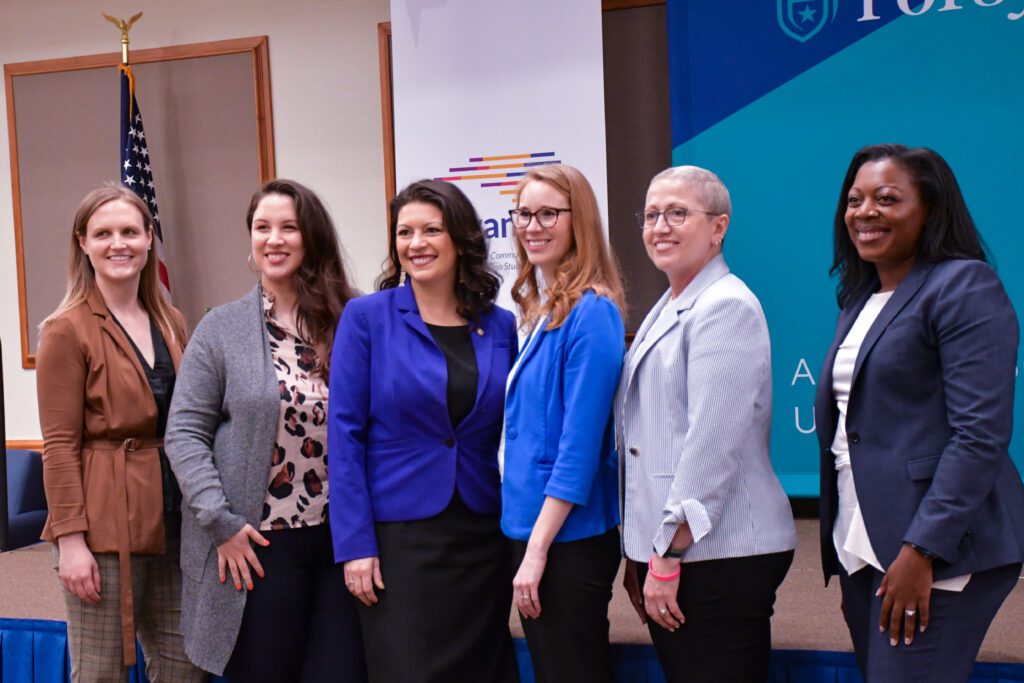

As part of the first cohort, the leaders spend the year engaging in a “community of practice,” focused on advancing attainment for Latino students across the state. The cohort is made up of the following institutions:
- Alamance Community College
- Blue Ridge Community College
- Forsyth Technical Community College
- James Sprunt Community College
- Pitt Community College
- Rowan-Cabarrus Community College
- Sampson Community College
- Wake Technical Community College
- Wayne Community College
- Wilkes Community College
Participating colleges were selected by either their designation as a Hispanic Serving Institution (HSI) or as an emerging HSI, or for their overall commitment to advocacy for Latino students. Schools with an undergraduate full-time equivalent enrollment of at least 25% Latino students are eligible to be identified as an HSI federally. Emerging status is assigned to institutions with Latino student enrollment more than 15% but less than 25%.
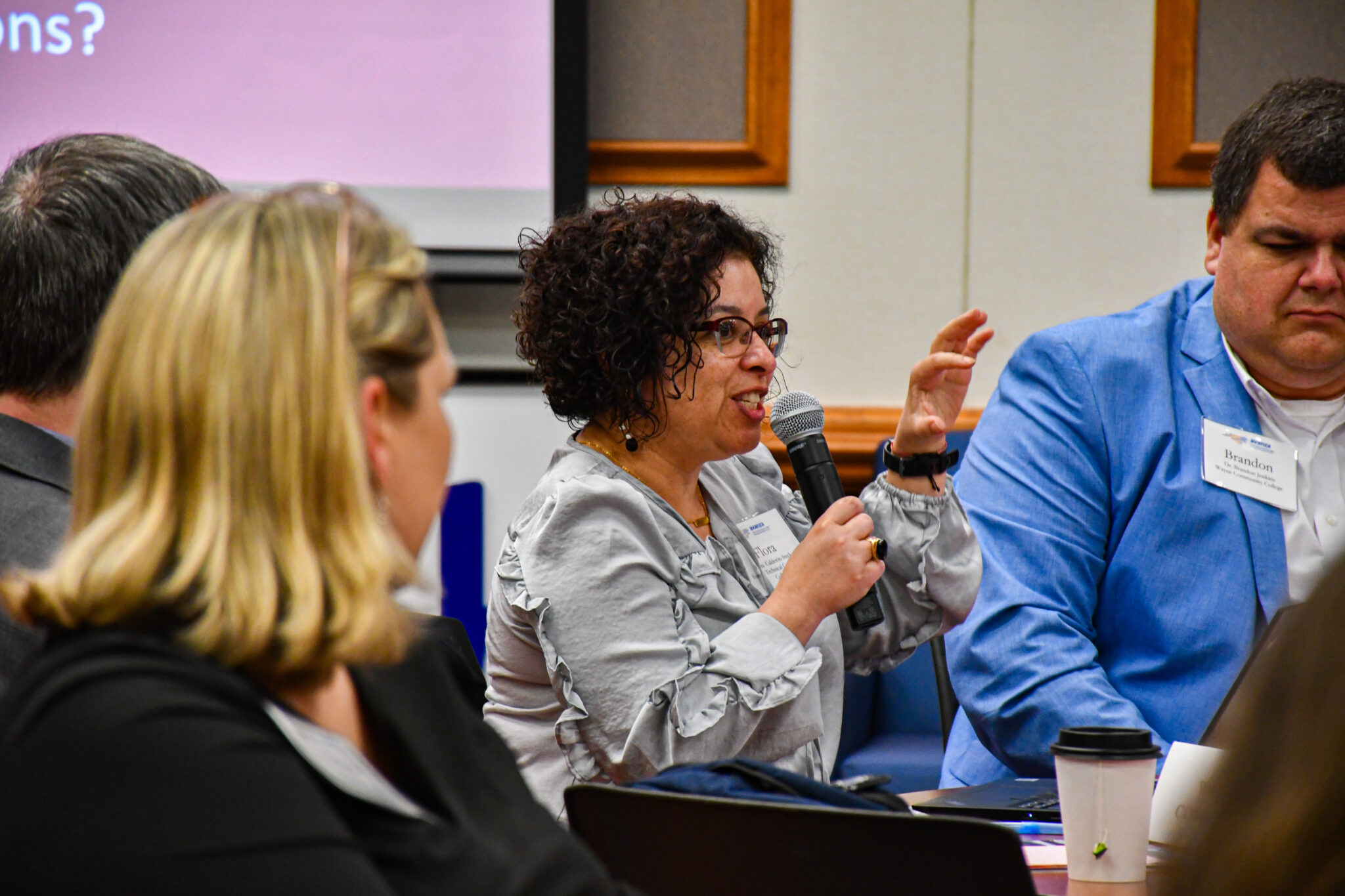

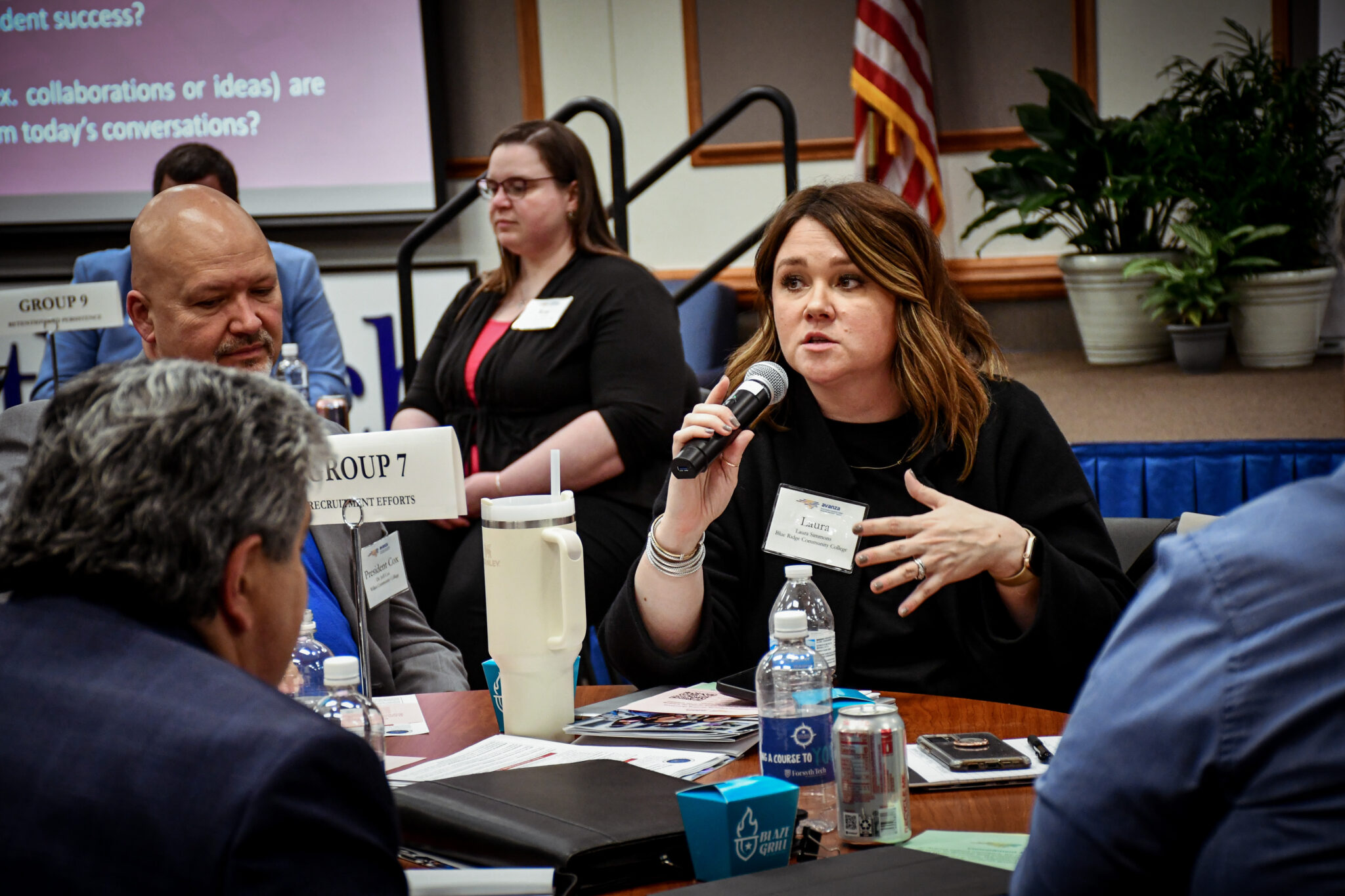

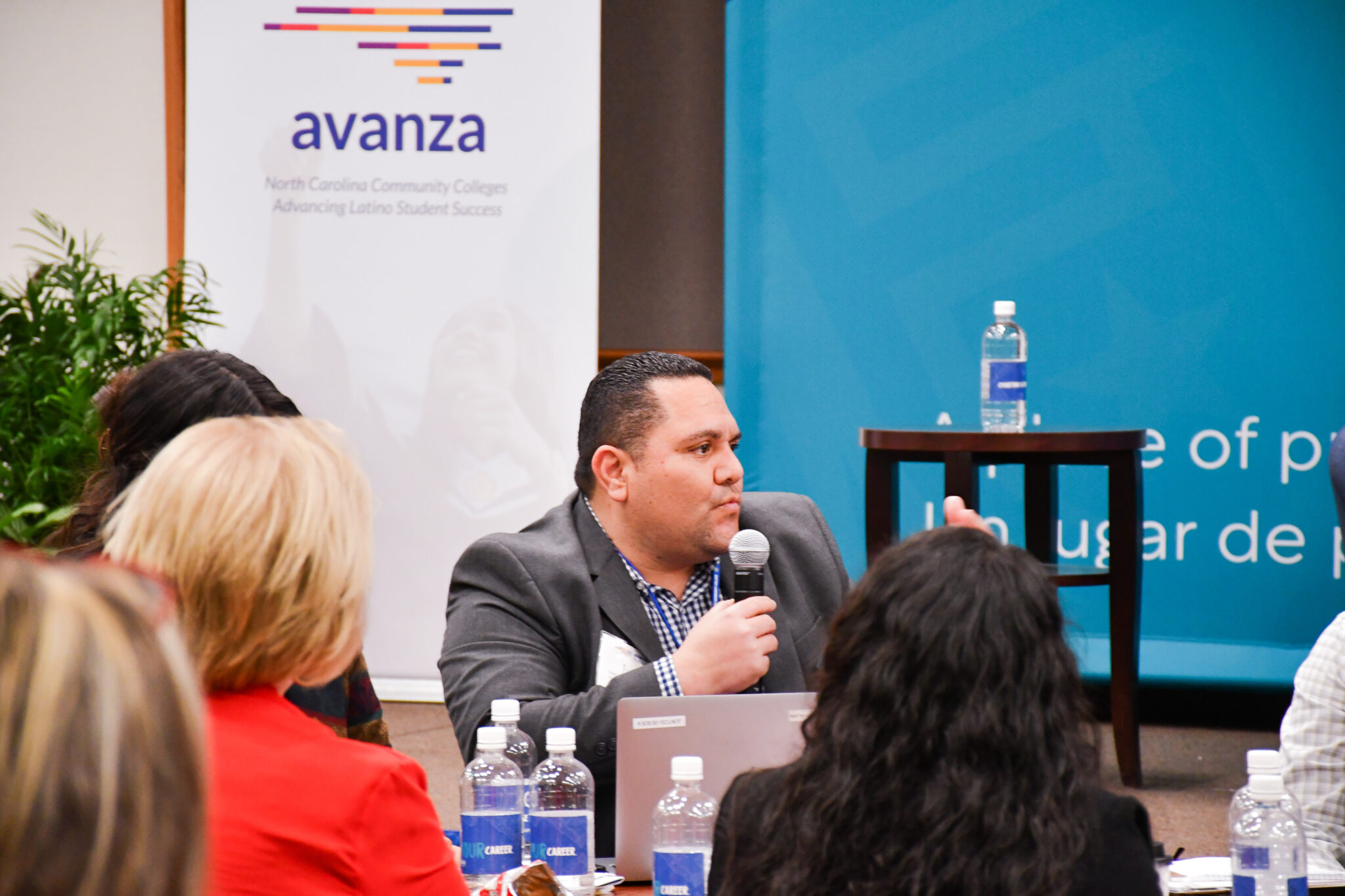

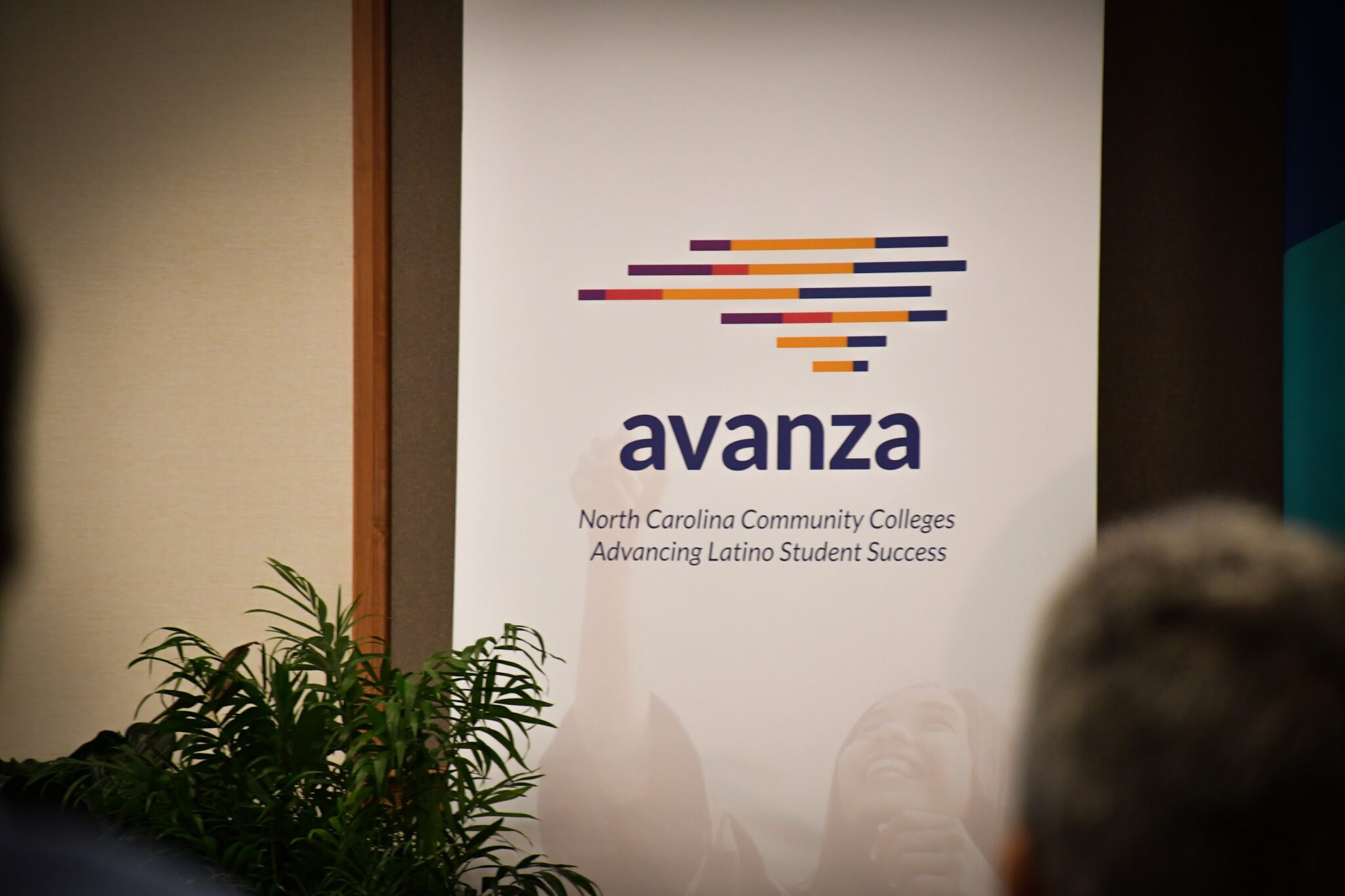

According to 2021 data from the Hispanic Associations of Colleges and Universities (HACU), Sampson Community College and James Sprunt Community College are two institutions with the HSI classification in North Carolina.
The convening welcomed experts Melody Gonzales and Dr. Russell Lowery-Hart to participate in a discussion moderated by the Hunt Institute’s Deputy Director of NC Programs Allison Goff Clark.
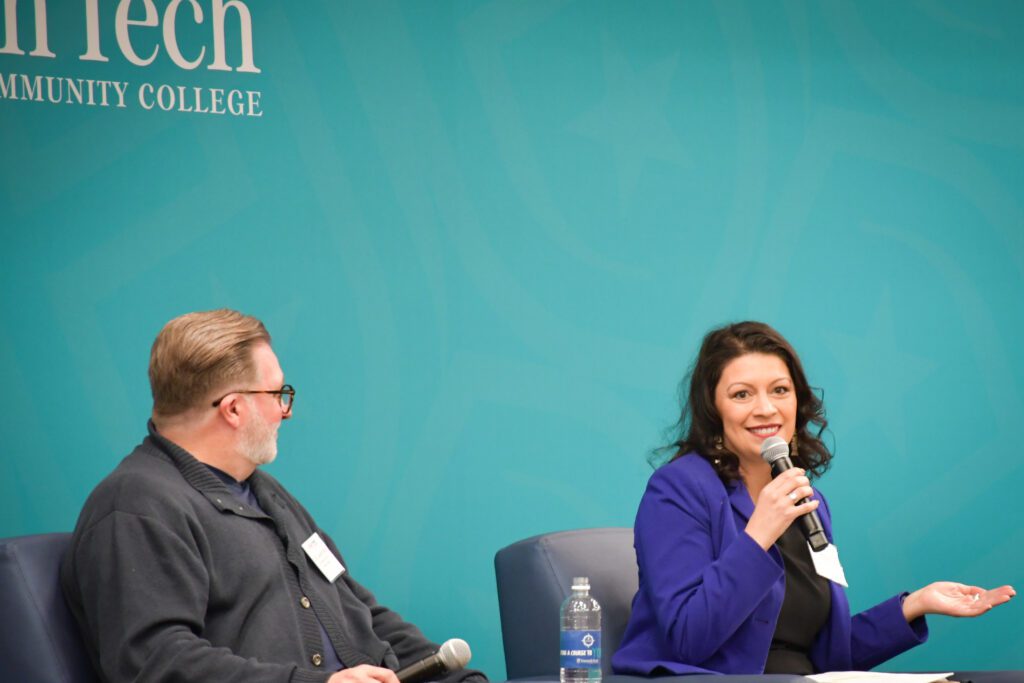

Gonzales is executive director of the White House Hispanic Initiative, centered on advancing education equity, excellence, and economic opportunity for Latino communities. Throughout the discussion, she worked to highlight several policy actions, programs, and grants such as: Raise the Bar: Lead the World, Bipartisan Safer Communities Act, Affordable Connectivity Program.
She said that a major part of her mission is to help communities learn about these resources, “building their capacity to have more mental health professionals, and pursue the preventative work that we know is so important to making sure that we’re building safer and inclusive school environments in a number of different ways.”
Dr. Lowery-Hart, president of Amarillo College in Texas, offered remarks on the school’s reformation approach, including conducting a listening tour, restructuring programs to redirect funding, and implementing mental health staff and training.
Lowery-Hart summarized the process with a three-part theory of change:
- Remove the life barriers.
- Offer an accelerated learning environment.
- Establish a deep culture of caring.
He said that institutions can’t “DEI officer your way to closing equity gaps,” but rather, must first start by “acknowledging that our history has excluded students and rewriting our structures in history for the students want, not the students that we were.”
As the director of Carolina Population Center with Carolina Demography, Dr. Nathan Dollar served as another research expert, exploring data pertaining to North Carolina’s population and postsecondary attainment for Latino students. It’s reported that North Carolina’s Hispanic population grew by nearly 320,000 new residents between 2010 and 2020, supporting the emphasis on implementing practices and policy changes that are conducive to the growth of the community.
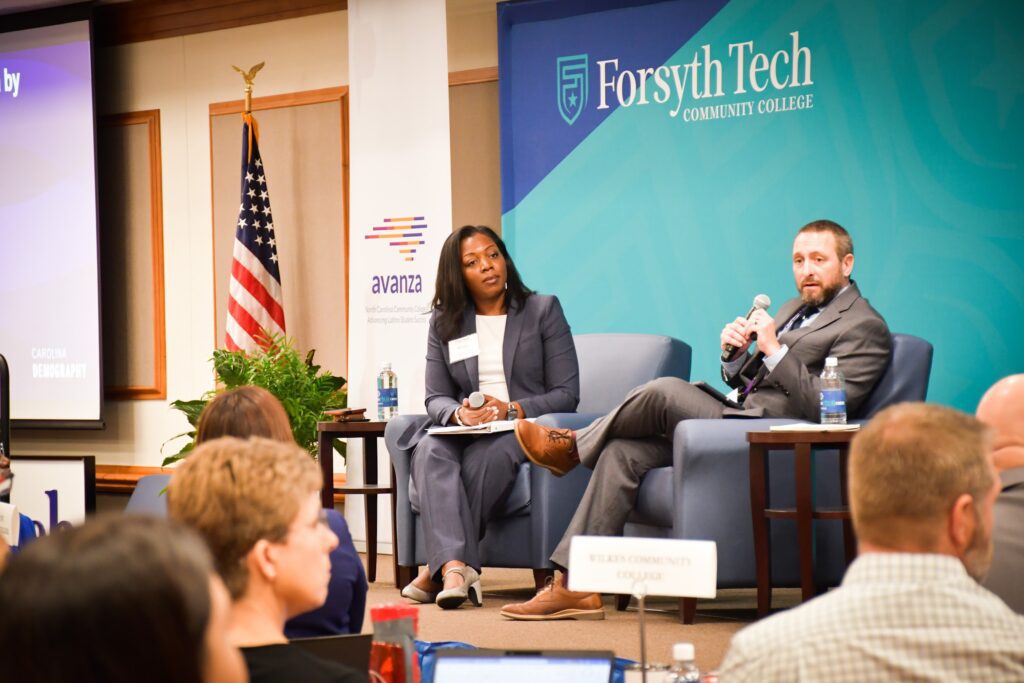

Regarding practices, attendees engaged in small group discussions across colleges, focused on building institutional capacity centered around the following themes: campus culture and sense of belonging, recruitment efforts, retention and persistence, community engagement and connection to workforce.
Building relationships is part of many institutions’ targeted approach. Craig Lamb, vice president of corporate and continuing education at Rowan-Cabarrus Community College, shared how his college thinks about this.
“One, is to evaluate our own staff and faculty demographics and compare those to the region and look at our effectiveness,” he said. “How do we start to intentionally move our own demographics to lead our community better?”
In alignment with another point by Dr. Lowery-Hart, Lamb feels that strategic plans must recognize “the need to address the whole family” when developing support for students.
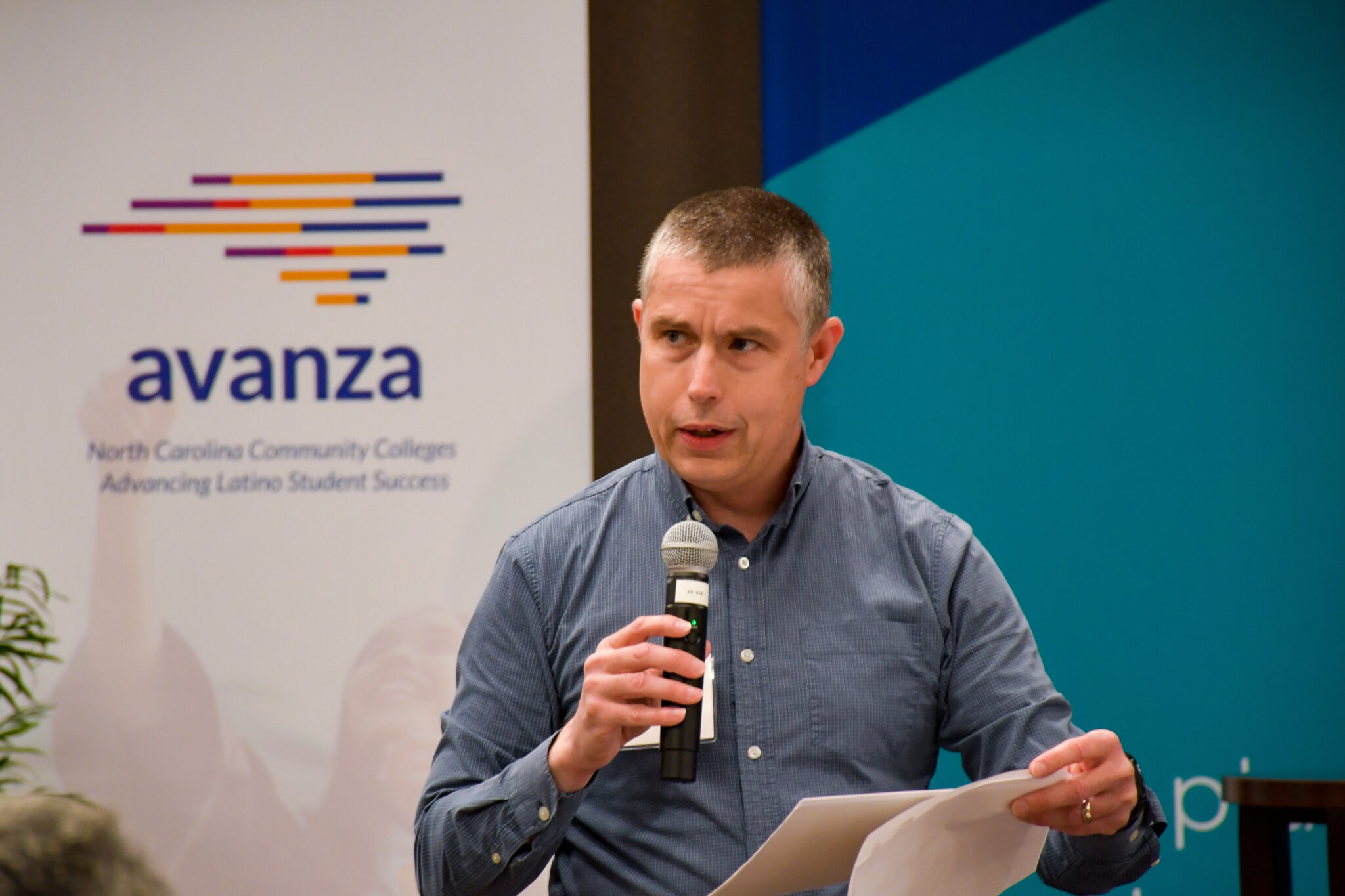

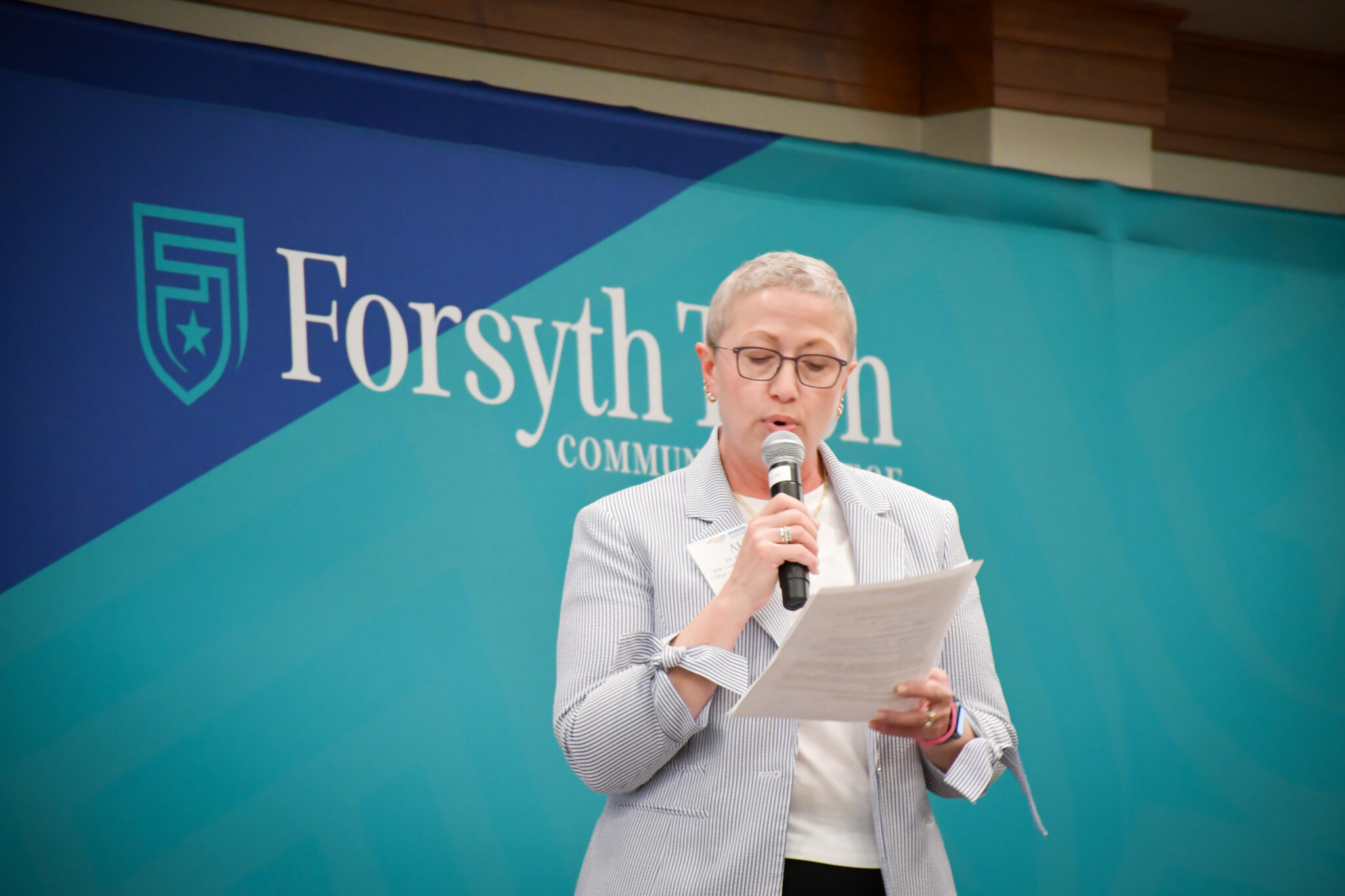

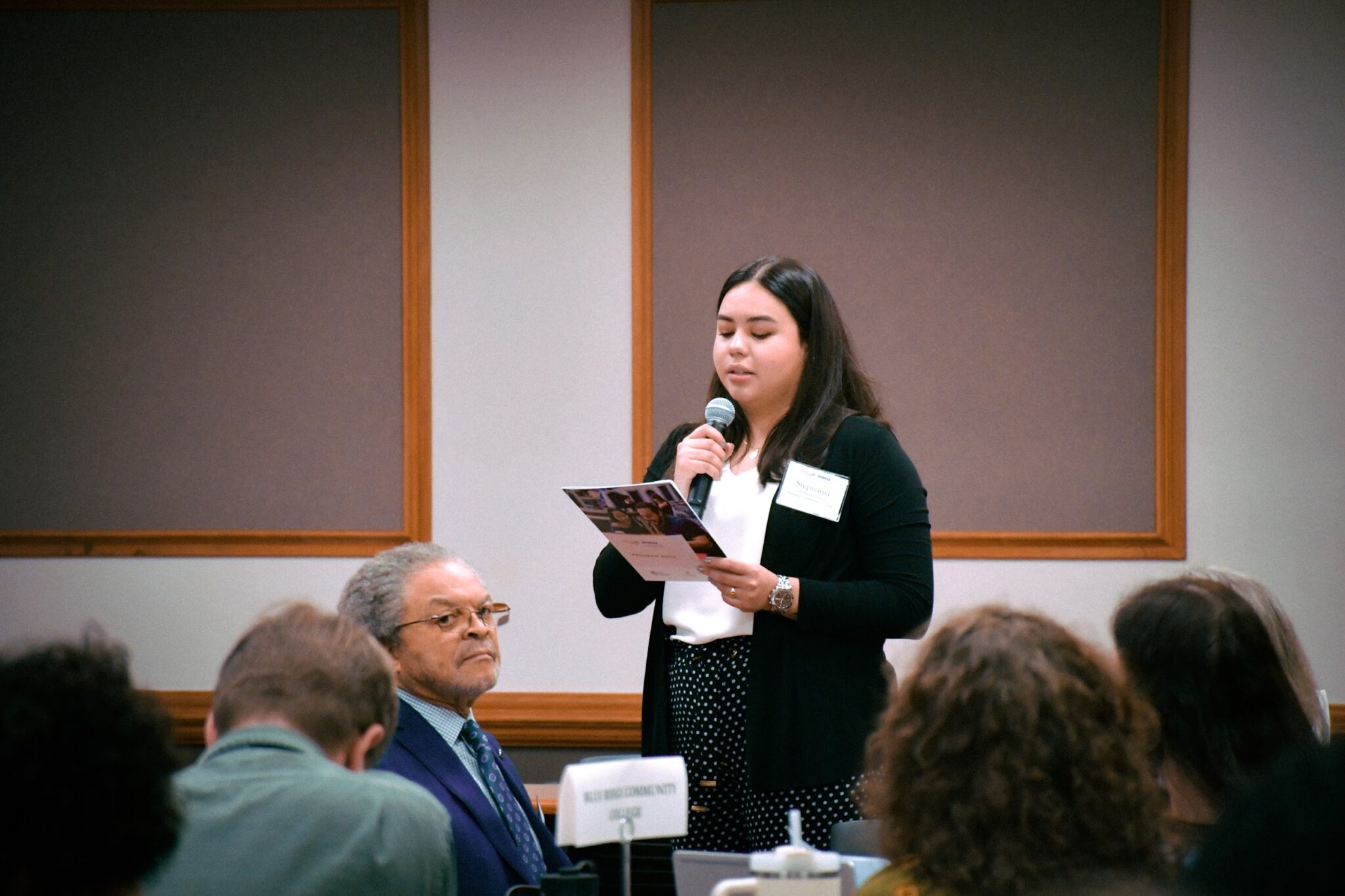

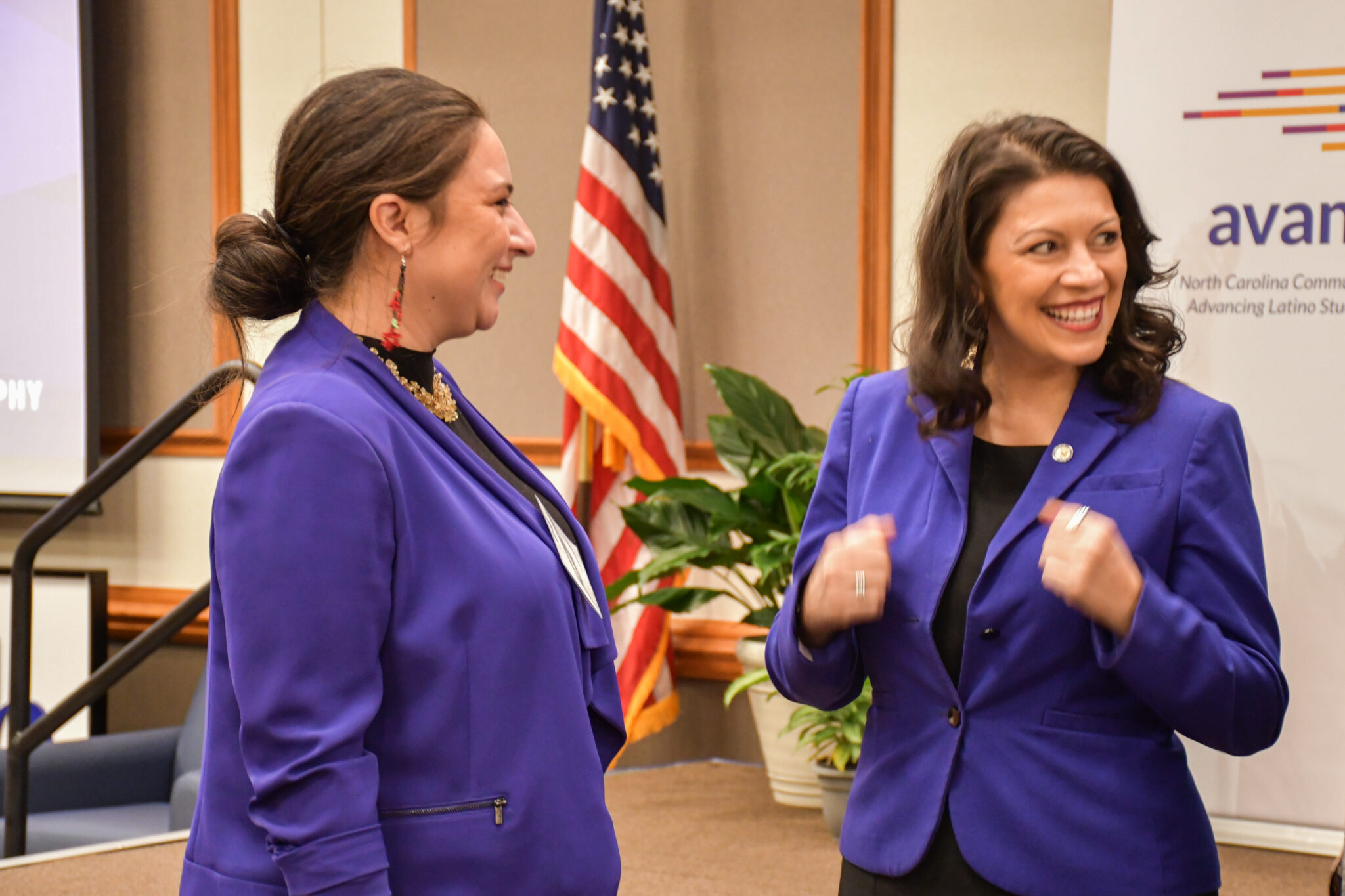

John Saparilas is associate vice president of enrollment services at Wake Tech Community College. Saparilas shared that the college anticipates hiring a workforce community officer that will be housed at the local Boys and Girls Club. Churches are among organizations that Wake Tech and other colleges have established partnerships as a part of their approach to expanding their connection to the Latino community.
Partners for Avanza compiled several policy considerations that are aimed at increasing enrollment and academic success for Latino students. They include addressing the barriers of accessing postsecondary education as it pertains to the impact of residency determination within the college application process. A five-part series examining the residency laws of North Carolina can be found here.
Throughout the year, these community colleges will continue to meet, further engaging in the discussion, deepening relationships across the network, and intentionally growing systems to target Latino student attainment.
Behind the Story
This article uses the term Latino in accordance with guidance from Avanza that reads: “The terms Hispanic and Latino refer to two different, partially overlapping groups: Hispanic refers to a person with ancestry from a country whose primary language is Spanish. Latino, and its variations, refers to a person with origins from anywhere in Latin America (including Mexico, South and Central America, and the Caribbean). To be as inclusive as possible, this brief will use the term Latino, unless otherwise specified by the data source.”



